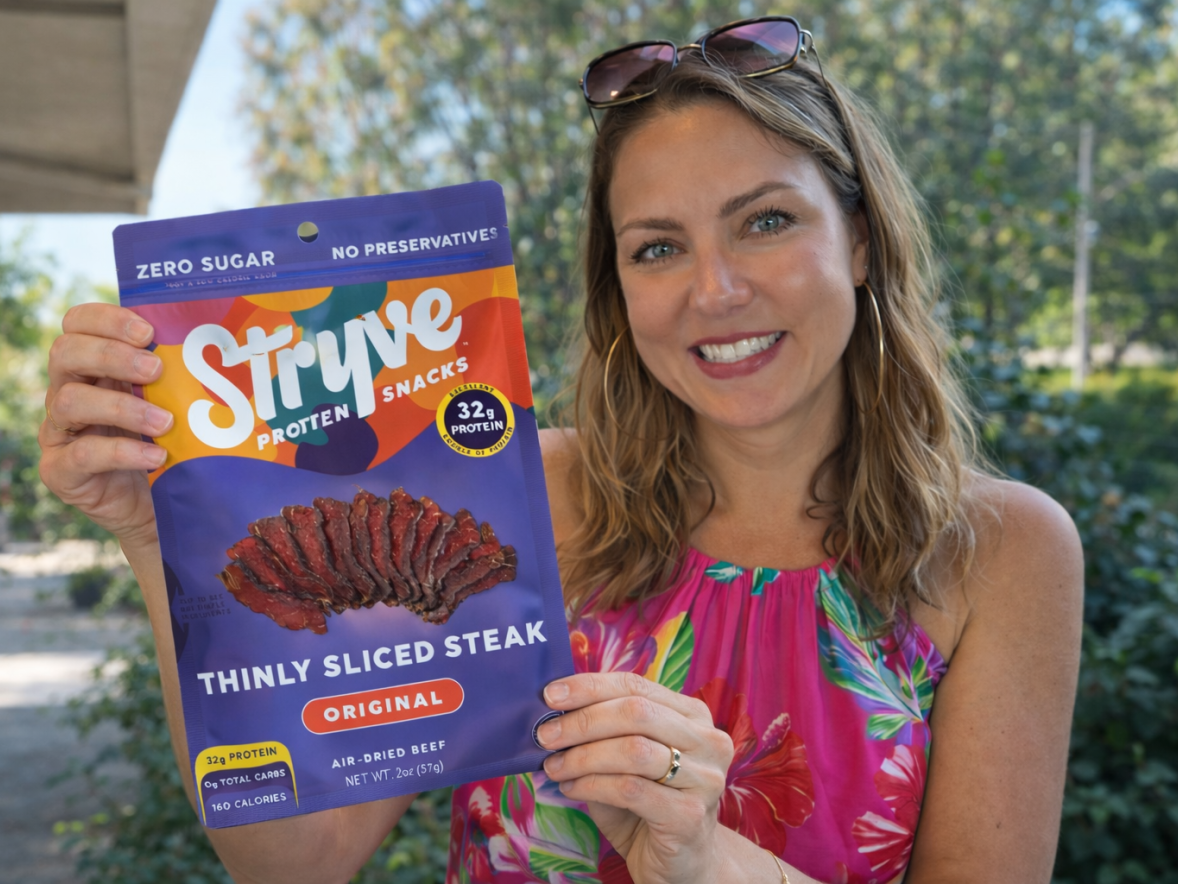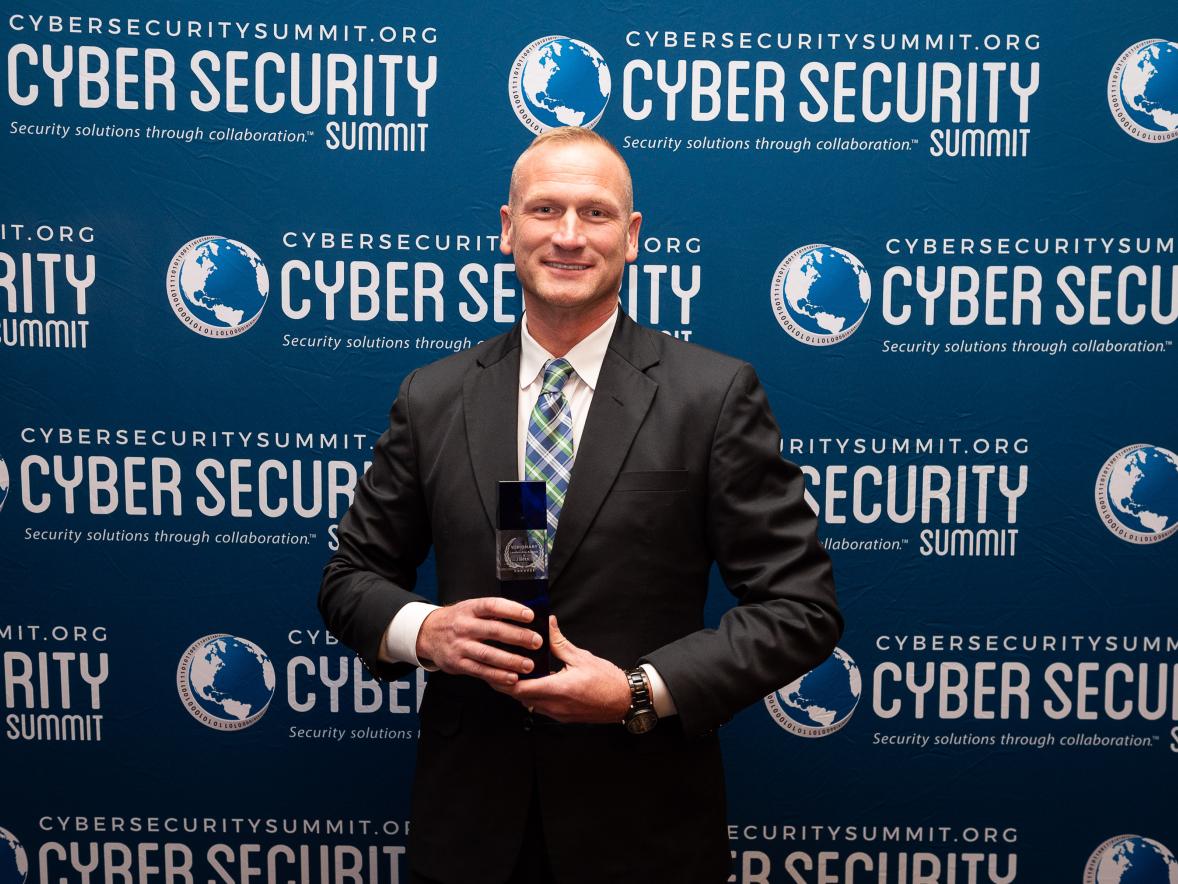The hearing rooms of the U.S. Congress. The “wild, wild West” of New York City housing court. The cutting edge of artificial intelligence in the courtroom. These are just a few of the venues where University of Wisconsin-Stout graduates are exercising their legal skills.
While the paths taken by these three young attorneys — Zachary Hoffman, Hayley Rich-Noble and Dillon Quest — vary widely, they all passed through Wisconsin’s Polytechnic University, which provided experiences that propelled them to success in law school and beyond.
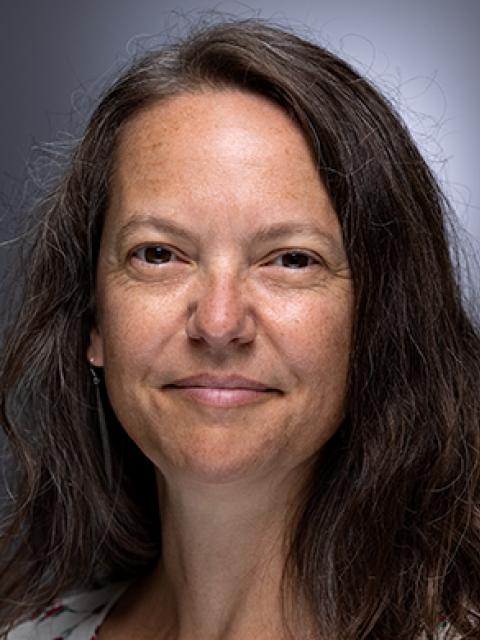
Professor Tina Lee, who serves as UW-Stout’s pre-law advisor, said there is no single undergraduate major that best prepares students for law school. Rather, law schools want applicants who know how to write well and how to learn — skills that UW-Stout degree holders honed during their undergraduate careers.
When she talks to UW-Stout grads who continue in law school, Lee said, “I hear that they were very well-prepared. They feel like they were as prepared or better prepared than a lot of their peers because they’ve done the kind of work as undergrads that law schools want to see. They can think critically, analyze information and present it clearly, and work across different perspectives.”
Meet just a few of the more than a dozen recent UW-Stout grads who have gone on to practice law in the past few years.
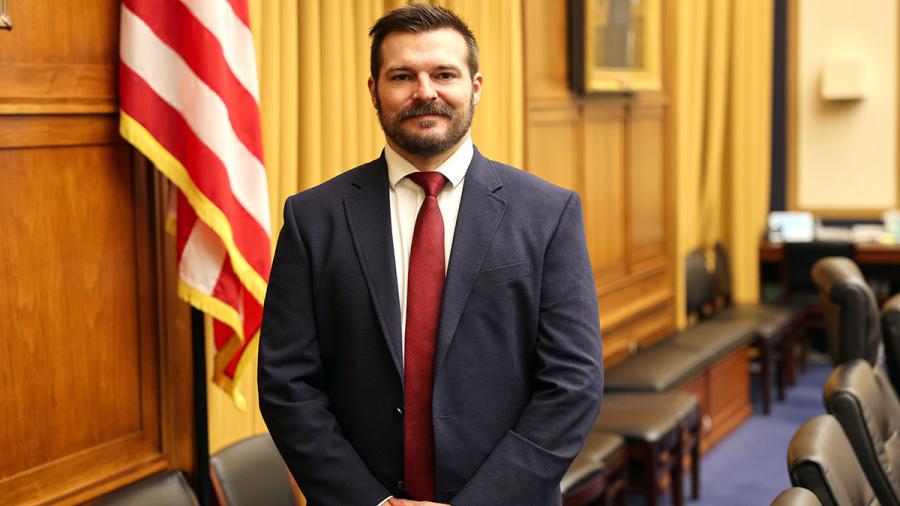
In the halls of power
“I know I would not be where I am today had I not gone to Stout,” Hoffman declared unequivocally. Where he is today is Washington, D.C., where he serves as counsel for the U.S. House Judiciary Committee, working closely with U.S. Rep. Jim Jordan, the committee’s chairman, and other members of Congress.
For those who’ve watched congressional hearings on TV, Hoffman is one of the staffers who sit behind members of Congress and occasionally lean forward to whisper in their ears. Hoffman conducts research for the committee, writing questions for members and helping guide them through hearings.
More than a decade ago, Hoffman, a native of Gresham in eastern Wisconsin, followed a friend to UW-Stout, where an interest in history led him to the B.S. applied social science program. There, Hoffman said, he learned how to think, read and argue analytically and critically.
“One thing I really liked about the classroom setting was the open dialogue,” he said. “When we first started, and there would be debates in class, there was a lot of emotion. But by the time we graduated, we had way more productive, objective debates and conversations — learning to listen to what someone else is saying and using what they’re saying to either change your opinion or find a way to change their opinion.”
His advisor, Professor Chris Freeman, suggested he apply to law school. “I’ve always been good at arguing, and I just took Chris’s advice and took the LSAT,” Hoffman said.
After graduating from UW-Stout in 2015, Hoffman was offered a scholarship at the University of Arkansas School of Law. He soon realized he had a leg up on many of his peers. “The analytical writing, reading and understanding are really something that the applied social science program helped me with,” Hoffman said. As he began his career after receiving his law degree in 2018, Hoffman found himself as an associate attorney sought out by law partners who knew he could quickly research and write the memos and briefs they needed.
During law school, Hoffman interned with a law firm in Dallas and ultimately took the bar exam in Texas. He worked in insurance defense for several firms before landing a job at Wilson Elser, an international firm with offices in 44 cities. There he served on the team that provided legal counsel to Amazon.
Earlier this year, Hoffman was recruited to join the House Judiciary Committee’s staff, a post he expects to hold until the end of the current congressional term. In this role, Hoffman helps investigate topics that may lead to committee hearings. He contacts companies that may be the subject of hearings, reads and summarizes documents, prepares subpoenas and writes questions for members of Congress. And yes, he’ll sometimes be in the background on C-SPAN, leaning forward and guiding congressmembers through questions and rebuttals.
Hoffman knows the connections and experiences he is accumulating in Washington will help him after he returns to practice law in the private sector, just as UW-Stout equipped him for the path he’s followed so far.
“I left UW-Stout prepared, and I didn’t even know what they were preparing me for,” he said.
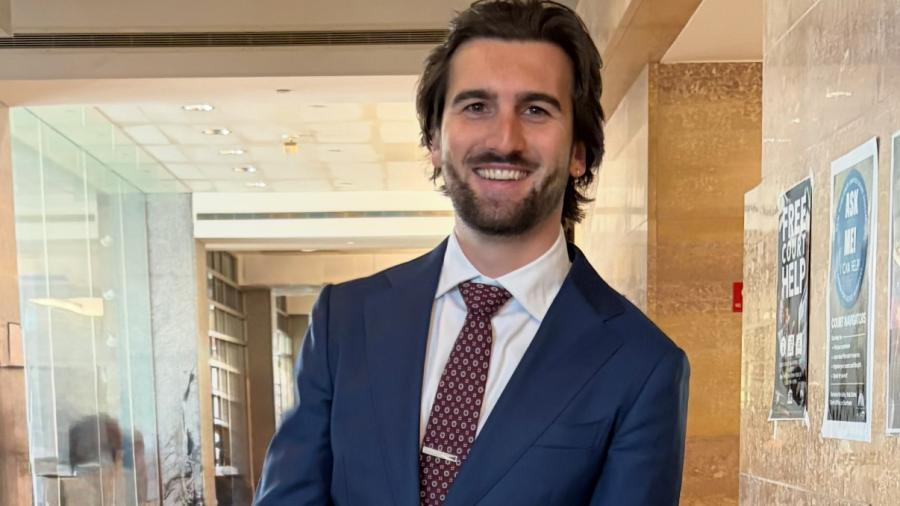
Standing up for tenants
For Quest, UW-Stout’s B.S. applied social science degree created a pathway to law school.
“In applied social science classes, you’re not just sitting back reading articles. You are doing the research, you are writing your own articles,” explained Quest, who graduated from UW-Stout in 2018. Now a staff attorney at New York Legal Assistance Group, Quest first came to UW-Stout as a football recruit from New Brighton, Minnesota, with a vague idea of working in law enforcement. A course in peace studies, taught by Lecturer Jim Handley, helped him find a trajectory. “That sort of opened my eyes to law,” he said of the course. “We talked about grassroot movements and nonviolence.” The class led Quest to an internship in Alabama at the Selma Center for Nonviolence, Truth, and Reconciliation, which combined work in a law firm with community canvassing.
“The professors I met at Stout were very much hands-on, and they could tell if you cared, and if you cared they would help you succeed,” he said. “A lot of my success in law school and being an attorney, I can look back and the roots were planted at Stout.”
This interest in social justice and the rigor of UW-Stout’s applied social science curriculum helped prepare him for the City University of New York School of Law. While CUNY classmates came from large public universities and even Ivy League schools, Quest said his hands-on experiences gained through UW-Stout’s polytechnic approach served him well in law school.
“I picked up on researching for law really fast,” he said, “Especially because when we were talking about researching articles at Stout, it wasn’t necessarily important that you needed to read everything. You needed to know when you had to do a skim and a close read.”
This ability to identify key information quickly, combined with a familiarity with making citations properly — a must in the legal realm — gave him an advantage over some classmates, Quest said.
The values and skills honed at UW-Stout and CUNY, where he received his J.D. in 2023, led Quest to his current role at New York Legal Assistance Group. This nonprofit organization provides free legal support to New Yorkers, with Quest focusing on housing law in the borough of Queens.
“We always say housing court is the wild, wild West of law,” he said, noting that changes to New York tenant laws enacted last year have been interpreted differently by different judges. “You see some big characters. No matter what courtroom you go to, it’s going to be interesting.”
Quest finds himself advocating for clients in the courtroom multiple times a week. These clients often face legal hurdles that may originate from problems in other areas of their lives. “How can I solve the root causes to end this case and stop any other case from happening down the road?” he finds himself asking.
“I think the biggest thing is my job at the end of the day helps people,” Quest said. “Our product is services, and our services are making people have a better life than before they met us.”
Examining AI use in the legal realm
Rich-Noble’s brief but already award-winning legal career became possible when she earned her B.S. in criminal justice & rehabilitation from UW-Stout in 2021. Rich-Noble, a Menomonie native, said the program was a great fit for someone who was interested in pursuing a legal career. “The fact that the classes were small and you could get to know your professors, that was really the most impactful part of it,” she said. “I could come to them with questions. I could get guidance on what to try out, what to do for my practicums.”
During her undergraduate career, Rich-Noble had two internships that helped her learn more about the many facets of the legal profession, working in victim-witness assistance positions in both Dunn and Buffalo counties. The experiences were formative for the future attorney, who got an up-close view of a variety of legal proceedings and personalities.
“I was able to go into court, hear something, see something, experience something, and then come to class a couple of hours later and talk about that case,” she recalled. “Why did they do this? Why did they file this motion? What does that mean?”
Rich-Noble enrolled in the University of Wisconsin Law School in 2021 and soon found herself contributing to class and enjoying herself. “Especially with those experiences, I was able to get a feel for what I might like and for what I might not like. Stout definitely prepared me as well as anyone could have been prepared,” she said.
She found herself drawn to moot court, which involved two things she enjoyed: conducting legal research and then arguing her findings in front of a three-judge panel. “That’s when I realized I really enjoy complex litigation,” she said. “It feels like puzzles, it feels like I’m solving something. I’m getting to an answer, and then I get to advocate for it and take a side.” Her interest in complex litigation was further solidified during 10 weeks as a summer associate at Godfrey & Kahn, a business law firm headquartered in Milwaukee with nearly 200 lawyers in offices around the state and in Washington, D.C.
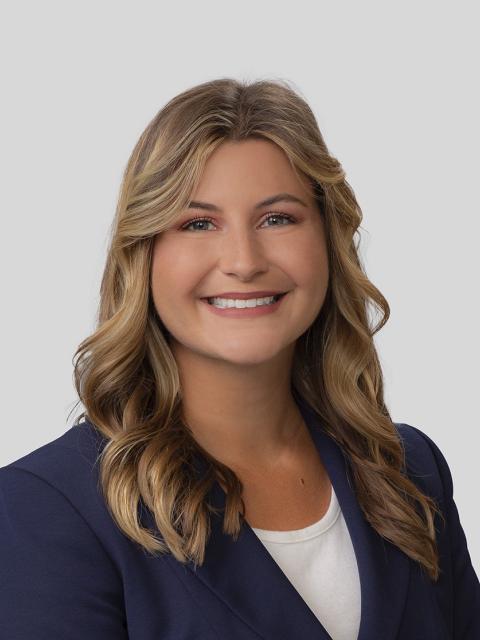
During her third and final year in law school, Rich-Noble took a course on electronic discovery, or e-discovery — the gathering and sharing of electronically stored information in a legal proceeding. Many of the students wanted to learn how the evolving world of artificial intelligence would impact e-discovery. Professor Timothy Edwards decided to write an article on the subject, and he recruited Rich-Noble as his co-author.
Their collaboration led to a two-part series, “Discovering & Admitting AI Data in State & Federal Courts,” published in the November and December 2024 issues of “Wisconsin Lawyer” magazine and distributed to the State Bar of Wisconsin’s approximately 25,000 members. The series examined the challenges presented by AI-generated data, including how it may or may not be admissible in court, how it can be authenticated and how it’s treated by rules of evidence.
“The articles examine the evidentiary and procedural challenges of using AI-generated data in court, offering practical guidance for attorneys navigating a rapidly changing legal landscape,” the bar associate said in announcing that Rich-Noble and Edwards had been named winners of the 2024 Hon. Charles Dunn Author Award, an annual honor for excellence in legal writing in Wisconsin. It was a unique honor for an author who had just earned her law degree.
Rich-Noble graduated magna cum laude from the University of Wisconsin Law School in 2024 and took a job as an associate with Godfrey & Kahn in September 2024. Over the past year, she’s been part of the firm’s litigation team, working on a variety of civil matters, including data privacy and cybersecurity disputes. As her career progresses, she intends to hone her courtroom skills and develop her own specialties.
“No matter what specialization I start to develop, AI is definitely going to be a part of it,” she said. “It’s nice to have a bit of an eye toward that already.”
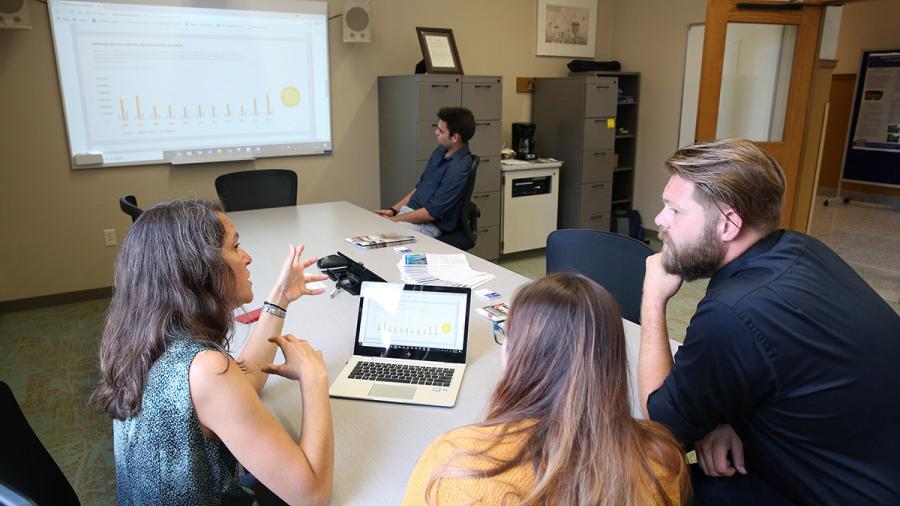
Legal pathways start at UW-Stout
Recently, UW-Stout launched its first partnership with a law school to help accelerate students’ trajectories into the legal profession. The 3+3 Law Degree Pathway agreement with Mitchell Hamline School of Law in St. Paul, Minnesota, allows UW-Stout students to save time — and money — by earning a both an undergraduate degree and a law degree in a total of six years instead of the typical seven. Students in the program attend UW-Stout for three years, then complete their undergraduate degrees during their first year of law school, with law school classes fulfilling the elective requirements of certain UW-Stout degrees: B.S. applied social science, B.S. psychology and B.S. criminal justice & rehabilitation. Participants in the 3+3 program are still required to take the LSAT and apply for admission to Mitchell Hamline.
Students interested in pursuing the 3+3 program are strongly encouraged to contact Professor Tina Lee, UW-Stout’s pre-law advisor.
“The process of getting to law school is kind of its own little world, and we will give good advice here at Stout,” Lee said. “Because Stout is hands-on, our students are going to look really strong to lots of law schools, because they have real-world experience. And because we have small classes, our students will be connected to faculty members who can speak well of them.”





